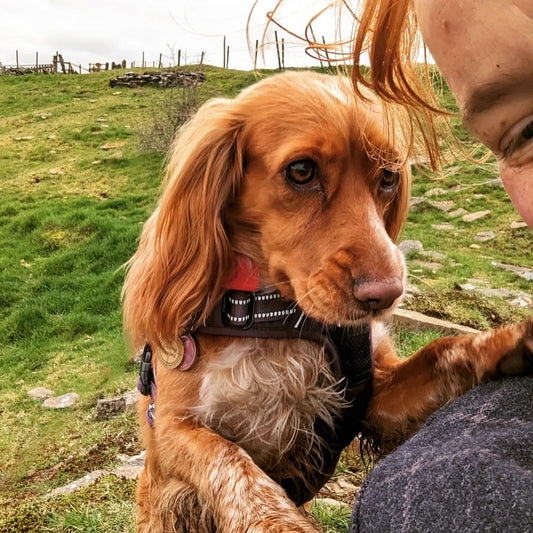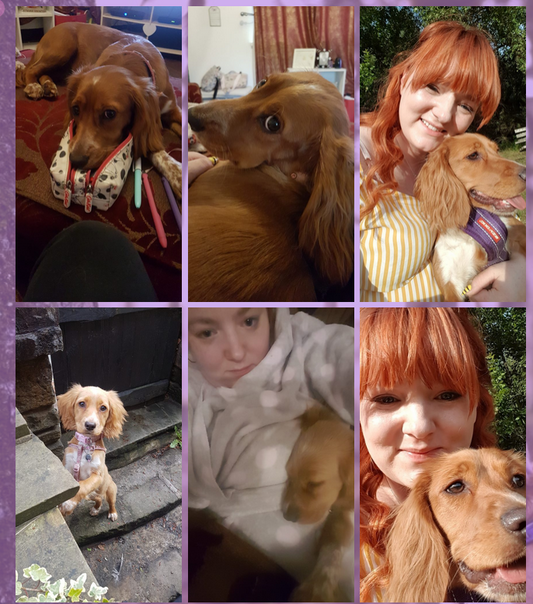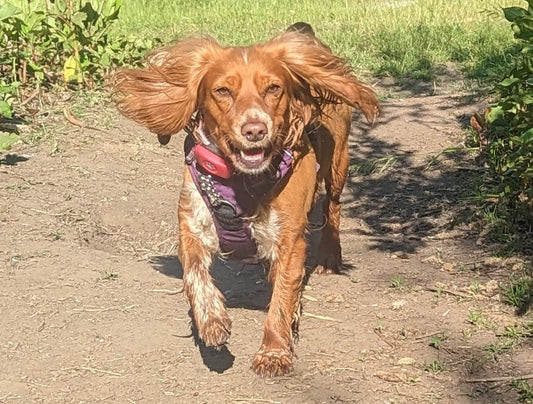Bringing a dog into your life is one of the most rewarding experiences, but it also comes with responsibilities. Dogs need regular exercise and mental stimulation to stay happy and healthy, and sometimes our busy schedules prevent us from providing them with the attention they deserve. That’s where a reliable and trustworthy dog walker comes in. Finding the right dog walker for your furry friend can make all the difference in their quality of life. In this blog post, we’ll explore some essential questions to ask and qualities to look for when searching for the perfect dog walker.
Having a dog walker is a great way to ensure that your furry friend gets the exercise and attention they need, even when you’re not home. But with so many dog walkers out there, how do you know which one is right for you?
Here are a few things to keep in mind when choosing a dog walker:
- Your dog’s personality and needs. Some dogs are very active and need a lot of exercise, while others are more laid-back and just need a short walk around the block. Consider your dog’s personality and energy level when choosing a dog walker.
- Your schedule. How often do you need your dog walked? Are there any specific times of day or days of the week that work best for you? Make sure to find a dog walker who can accommodate your schedule.
- Your budget. Dog walkers’ rates vary depending on their experience, location, and the services they offer. Be sure to factor in your budget when choosing a dog walker.
Once you’ve narrowed down your options, it’s time to start interviewing potential dog walkers. Here are a few questions you should ask:
- How long have you been a dog walker?
- What is your experience with dogs of different sizes and breeds?
- What are your rates?
- What are your cancellation policies?
- What are your emergency procedures?
- How will you communicate with me about my dog’s walks?
Lets look at some of these questions in some detail and why you should consider them when looking for your dog walker.
1. Experience and References: One of the first things to consider is the walker’s experience in handling dogs. Ask potential candidates about their background, training, and how long they have been working with dogs. Request references from previous clients to gauge their reliability and the satisfaction of their customers.
2. Insurance and Checks: A professional dog walker should have liability insurance to cover any accidents or injuries that might occur while your dog is under their care. Have they had a DBS check done? I will never take offence if a client ask to see a copy of my DBS check, at the end of the day you are allowing someone in your home when you might not be there so you want to ensure its left in safe hands. A self employed person is able to complete a basic one themselves online. DBS also have no official expiry date so if you personal would like a up to date one, it worth baring in mind that the person can request you pay for it as this is an addtional expense for the person and if they already have one that is only a year old but you want one that more recent that should be a cost they absorb. Most people renew there DBS around 3 years, but you as a potentional client have the ability to ring up the local council or policy and see if a person is on any list or monitored. So you also need to resenable with request of this nature, because it also take 14 days to have the check done.
3. Certifications and Training: While not mandatory, certifications from recognized dog training organizations or memberships in professional associations can indicate a higher level of commitment and knowledge. Enquire about any specialized training the dog walker has undergone, especially if your dog has specific needs or behavioral issues. In order to be a dog walker you do not need to have any qualification, many dog walkers do not join professional associations as there is little benefit to them. So when looking into what certificate they have done enquire as to why. Not all dog walkers work as trainers, some just enjoy walking dogs, some do it as a side job. Enquire as to why they started and if they do any form of continued personal development and why.
4. Group Size and Dog Compatibility: Find out how many dogs the walker usually takes out at a time. Some dogs thrive in larger groups, while others prefer one-on-one attention. Ensure the walker’s group size aligns with your dog’s personality and needs. Additionally, inquire about how the walker assesses dog compatibility to prevent any potential conflicts. If you are looking for a solo walk enquire as to how the walk is planned and what thing the walker considers when planning the walk.
5. Walking Routes and Duration: Ask about the typical walking routes and the length of the walks. Ensure that the walker’s routine aligns with your dog’s exercise requirements. A tired dog is usually a happy dog, so knowing that your pup is getting enough exercise is crucial.
6. Emergency Procedures: Inquire about the steps the dog walker takes in case of emergencies, such as injury or sudden illness. Ensure they have your contact information, as well as your preferred vet’s details, on hand. Also enquire as to what happens if there is an emergency with your dog what steps dose the person take, for example if the dog is not able to get in to there own vets.
7. Communication and Updates: A good dog walker will provide regular updates on your dog’s walks and overall well-being. Whether through texts, pictures, or a daily report card, this communication can put your mind at ease and keep you connected with your furry friend’s activities. If you have specific requirements you want this is a great way to find out if the walker can commodate them. For example are you only able to see pictures online, but you want them sent directly to you. Do you want pictures sent when they are together or are you happy to wait till they have finished.
8. Handling of Behavioral Issues: If your dog has any specific behavioral concerns or medical conditions, discuss how the walker plans to handle these situations. Understanding their approach to challenges will help you determine if they are the right fit for your pet. As questions about when you have had an issue and what you did and ask if they would handle it differently. You can also as question about if they have had a issue with a dog in the past and how they over come it. If you have a dog with a behaviour issue and a problem occurs on a walk do you expect to be told regardless of if its just they barked or do you only need to know if something happened. But also make sure the walker understand that if a problem occurs once its a learning experience but you don’t expect it again. Your dog walker needs to know if your the kidn of person who needs to know all the details or happy only ro contacted if there is a isssue.
9. Trial Walk and Observation: Before committing to a long-term arrangement, consider arranging a trial walk to observe how the walker interacts with your dog. Pay attention to your dog’s body language and behavior during the walk to gauge their comfort and happiness. Personally I always offer a meet and greet before agreeing to take on a client. This is the perfect time to see if the dog likes the person you have found, but also how they interact with your dog. Not all dog walkers will offer a trail walk, it might be just at your home. If you want to arrange the meet and greet as a walk then suggest it if its not offered. Note you can’t expect someone who is self employed to just meet your demands if they state that they do not offer trail walks or do not want to do the meet and greet as a walk, you have the opion of just doing it as they prefer, or offer to pay them for a walk but you will be there. Remember this is how they earn there money you wouldn’t go to work for free so don’t expect others to. Again you need to be realistic with what you are requesting from them, when they give up time for free to you they could be getting paid from someone else so that might be why they don’t do it. However this leads in nicely to my last point.
10. Trust Your Gut Feeling: Lastly, listen to your intuition. If something feels off or you have any reservations about a potential dog walker, it’s okay to explore other options. The ideal dog walker should not only meet your practical requirements but also have a natural affinity for animals and demonstrate genuine care for your pet’s well-being. Before I became a dog walker and I needed Nala walking once a week I interviewed around 5 different dog walking / daycare providered before deciding which one I would be best. Daycares I even went to and looked around.
It’s also a good idea to ask for references from the dog walker’s previous clients. This will give you a good idea of their experience and how they handle dogs. The way I always view it is, you wouldn’t leave your child with someone you didn’t think was qualified and since dogs are also part of the family why would you wouldn’t leave them either. I personally don’t leave Nala with anyone that hasn’t being fulled checked and meet with first.
Once you’ve interviewed a few potential dog walkers, you should be able to find one who is a good fit for you and your dog. Finding the right dog walker can be a daunting task, but it’s worth it to find someone who you can trust to take good care of your furry friend. By following these tips, you’ll be well on your way to finding the perfect dog walker for you and your dog.
Additional tips:
- Ask your friends, family, and neighbors for recommendations.
- Check online reviews for dog walkers in your area. Facebook, Instagram, Google Business or Yell not all dog walkers use them all.
- Do a test walk with the dog walker before you hire them.
- How do they treat their own dog.
Finding the perfect dog walker may take time and effort, but investing in the right person will ensure your furry friend receives the love, care, and exercise they need. Remember, a happy and healthy dog contributes to a happy and fulfilled pet owner!






